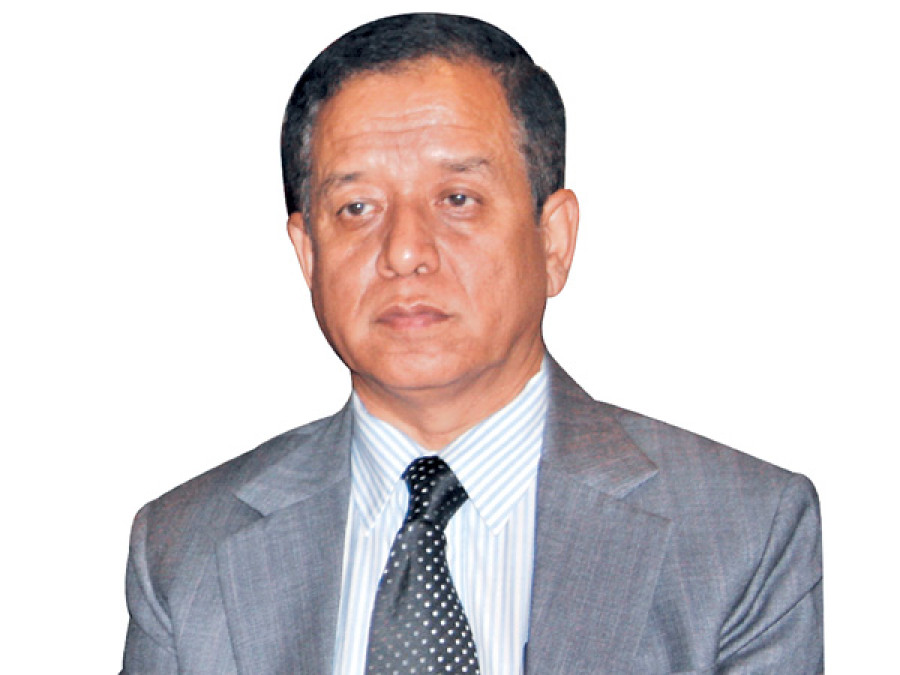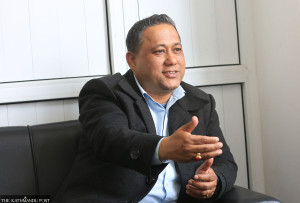Interviews
The Nepali labour sector is going in a sad and wrong direction
The deadly attack on Nepali Security Guards providing frontline defense for western embassies in Kabul that left 13 dead and several injured has sparked outrage and elicited reflection on Nepalis doing dangerous, difficult and dirty jobs in the Gulf and conflict hotspots.
The deadly attack on Nepali Security Guards providing frontline defense for western embassies in Kabul that left 13 dead and several injured has sparked outrage and elicited reflection on Nepalis doing dangerous, difficult and dirty jobs in the Gulf and conflict hotspots. It has also triggered debate on the treatment of Nepalis by their employers—in the case of Afghanistan by western companies providing services to western embassies. Following the incident, the government has imposed a complete ban on foreign employment in Afghanistan for Nepali nationals. But migration expert and former member of the National Planning Commision, Ganesh Gurung argues that a ban will not deter Nepalis from taking jobs in war-torn countries. Gurung spoke with Roshan Sedhai and Apekshya Shah Rana about the Kabul incident, the reactions to it, the government's ban, and the general trend of migration.
How do you assess the Kabul incident?
It is indeed a sad incident. Earlier there was a complete ban on Nepalis to go to war-torn countries such as Afghanistan. However, all of a sudden in 2011, the government, without proper assessment, partially lifted the ban, after which Nepalis were allowed to go to Afghanistan to work but only at ‘green zones’ such as the UN offices, Nato premises or diplomatic missions, which have better safety measures in place. Irrespective of what the government claimed, the ban was lifted under pressure from employment recruitment agencies; the nexus between politicians and these agencies is very strong. But it did not conduct any monitoring visits during this whole period. Now after the Kabul incident, the government has once again suddenly placed a ban without any study. This is problematic.
Do you think the ban will stop people from going to war-torn countries?
Not at all. A partial ban, which prohibited Nepalis from working outside the green zone (i.e. the red zone), was already in place. Still, a significant number of Nepalis went to Afghanistan via Abu Dhabi, Dubai and India and worked in the red zone. An open border with India makes this process almost impossible to stop. People go to various destinations of their own volition—without the government’s permission. So the newly-placed ban is meaningless. In fact, the ban will make the Nepali migrants more vulnerable as they will travel without informing the government of their whereabouts. The recruitment agencies will also charge the migrant workers as they please and take them to all sorts of dangerous places to work in. Incidentally, the trend of women going to the Gulf countries went up as soon as the government placed a ban on it.
Why in your view do Nepalis travel to war-ravaged countries?
Those who go to these countries are well aware of the danger. Contrary to the general opinion that the government is responsible, I think those choosing to go to these countries are primarily responsible. The government’s role is secondary. And the reason people go is that they get a relatively higher salary in war-torn countries than at home or in other countries. The greater the risk, the higher the salary.
In the last two centuries, the word ‘Gurkha’ has become a well-known brand name and thus, Nepalis are mostly in demand for security agencies. But the country has not been able to capitalise on this valuable brand name; others are doing it.
Those who died recently in Afghanistan were hired by a British company, which must have been attracted by the brand name.
If the government cannot stop migration to such war-torn countries, how can it facilitate it?
The government has to identify places where Nepali security guards will be in greater demand than in Afghanistan, Iraq, Libya and Syria. There are niche markets for security guards all over the world now. I have heard 500 people are required as security guards at the Panama Canal. There are millionaires the world over who want Nepalis as their security guards if the government markets the Gurkha brand successfully and finds alternative places for employment.
Why do you think the reactions to the Kabul massacre were not as violent as the reactions to the Iraq massacre in 2004?
The first reason behind the violent reaction against the 2004 incident is that back then, the Nepalis were killed in a grisly manner; the beheadings were shown on television. The second reason was that the name of the recruitment agency that sent the murdered workers was revealed, which was a big blunder. This time around, I had advised the government not keep the name of the recruitment agency confidential. It should remain so for a while. Yet another reason is that people seemed to have learned from the last incident and largely refrained from vandalism. Also, those who were murdered in Iraq did not have insurance, whereas those who were killed in Afghanistan did.
On the day the bodies were brought back from Kabul, I was a bit worried that some people might engage in vandalism to vent their ire. The labour minister was out of the Valley. He did make a mistake by speaking prematurely. He probably was not aware of the distinction between the green and red zones and he said that there is a ban on Nepalis from working in Afghanistan. Fortunately, he did not say much after that. An additional reason why people got angry after the Iraq incident was that government officials spoke more than what was necessary. People exercised restraint this time, which was a wise thing to do.
What is your take on government regulation of recruitment agencies?
The employment recruitment agencies have amassed a great deal of profits. The government has not been able to regulate them. Our society in general has also failed to point fingers at these agencies and tell them that some of their activities are condemnable.
How have you looked at the overall trend of migration from Nepal?
There has been a relative decline in the number of people going abroad to work. But we have been sending people to countries that have some of the worst labour laws in the world. It will take many years for the laws in those countries to get better. Instead of looking for alternatives, we keep sending people to these countries as if they are the only places where Nepalis can be employed. For lack of resources or other reasons, private recruitment agencies will not look for alternate places for employment. That is where the government has to step in. The Ministry of Labour lacks resources, but the Foreign Employment Promotion Board has plenty—almost Rs4 billion. And it comes from the migrants themselves. There should be an Act that makes looking for suitable markets for Nepali migrants a part of the board’s job. If we can find such markets and provide relevant information, Nepalis will go there in hordes.
In what direction is the Nepali labour sector going?
It is going in a sad and wrong direction. We have started exporting our youths and importing something as vital as food. Every month we import rice worth almost Rs1 billion. Our youths are toiling in foreign lands while our lands remain fallow. There has been a loss of traditional knowledge about agriculture. It is a dangerous trend and it might cost us dearly some day. Similar to some countries like Japan, Nepal needs to incentivise people to take up agriculture.
What have been the broader impacts of migration on Nepali society?
More than 10,000 Nepalis have lost their lives while working on foreign soil. Most of them were youths who were given a clean bill of health before they left Nepal. There deaths have resulted in thousands of chilrend being orphans. For women who go abroad and have children with foreign nationals, there are practical difficulties in passing on citizenship. A lot of these children, if they fail to receive citizenship, are likely to end up being unproductive or even destructive members of our society.
The state needs to equip the migrants with useful skills; and it has to tap the skills of the returnees. A culture and environment conducive to entrepreneurship has to be developed so that people are more motivated to create business and employment for others than to go abroad for a salary.




 9.12°C Kathmandu
9.12°C Kathmandu










%20(1).jpg&w=300&height=200)

